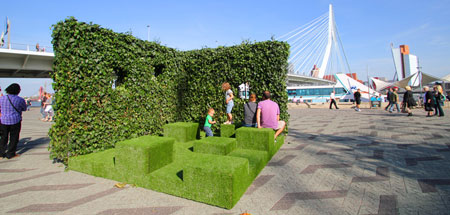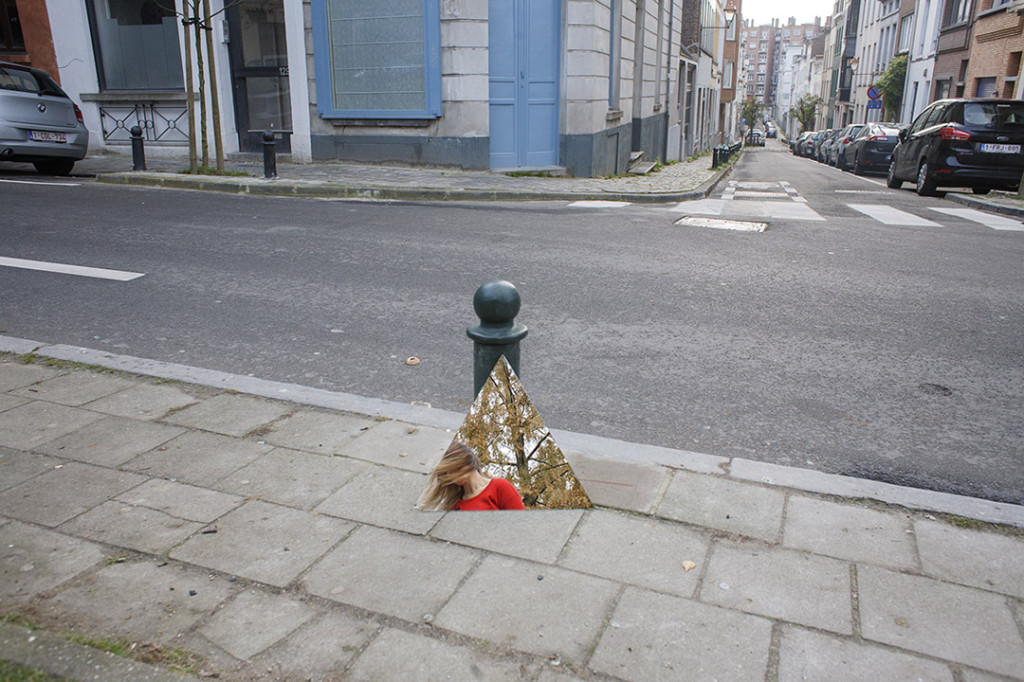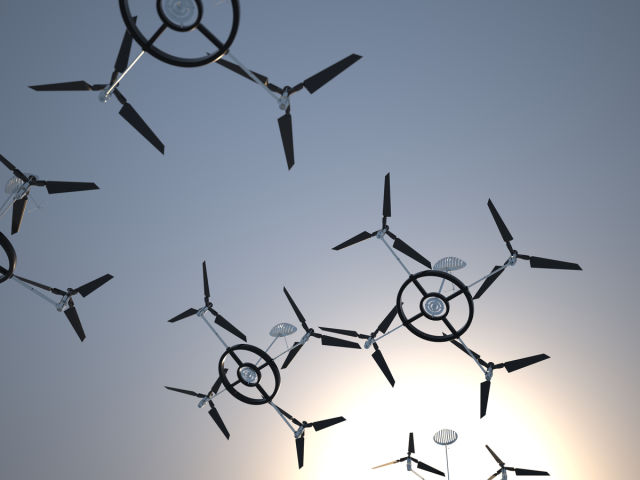2: Schenley Park is located along Forbes Ave across from the Cathedral of Learning. It contains many small restaurants, greenspace, and a performance tent with seating areas.
3: It’s close to both University of Pittsburgh and Carnegie Mellon; along several bus routes; near the Main Carnegie Library, the Carnegie Museum of Art, the Carnegie Museum of Natural History, and the Phipps Conservatory; and near a popular strip of Forbes Ave, creating a confluence of a variety of people. The area surrounding the Plaza are points of interest or necessity for many people, and nearly half the people observed were using the area as a through-way to get to another place. This creates a passive audience, some of which may be willing to pause if they see something out of the ordinary.
4: Seating alongside Forbes Avenue provide small, intimate spaces potentially for storytelling or small-scale performance.
5: These areas were also filled with semi-enclosed outlet plugs. Some of the observed plugs had been affected by outside elements to the point where they were no longer useable, but the still-working ones could provide a valuable power-source for interventions that require use of computers, projectors, and/or other electronic equipment
6: Those who were actively at the park were observed to be using the walkway along the edge of Schenley Drive. The large tent at the end of this pathway not only provides performance space for medium scale acts, but also provides a white, matte surface that could potentially be used for projection.

The Green room by Cassanova+Hernandez is a series of temporary installations that transforms an anonymous area of the public space of the city into an open room for citizens. More info here

Kaleidoscope is a term derived from the Ancient Greek: kalos meaning “beauty”,eidos, which is form andskopeō, “to look to, to examine” hence “observation of beautiful forms”.
In this serie I play with ordinary scenes where a mere mirror invites to enter different realities. It also questions the limits between public and private spheres: the mirror, an element traditionally belonging to an intimate space- such as the bathroom- is placed outdoors.
More here

On the top of hill covered with grass, five white sofas are floating in the air. Viewers find them from under the hill and walk up. Each sofas have ladder or stairs to reach to the seat. And viewers can sit down on the sofas and realize beautiful landscape and sky in front of them. This is the sofa to sit into the sky. More here
Quadratura uses video projection on architecture to extend the main axis of the room and expand the limits of physical space. The project is based on a technique used in the baroque. More info here.
Animalia looks at how we may begin to genetically alter the design of corals seeded in areas where tsunames might hit. More info here

Inspired by the Weather Modification Office in China, Caelum creates a hypothetical sandbox testing facility in Mali, where a completely artificial climate with complex wind manipulation, sunlight control, rain seeding, and weather-based biodiversity experimentation is set up. More info here
Time Tilings is about time, space and perception. Pablo Valbuena explores the overlap of the physical and the virtual, the generation of mental spaces by the observer, the dissolution of the boundaries between real and perceived, the links between space and time and the use of light as prime matter. More info here



